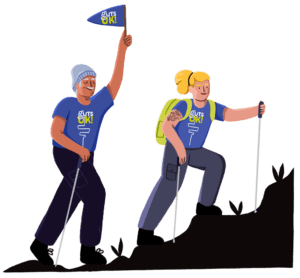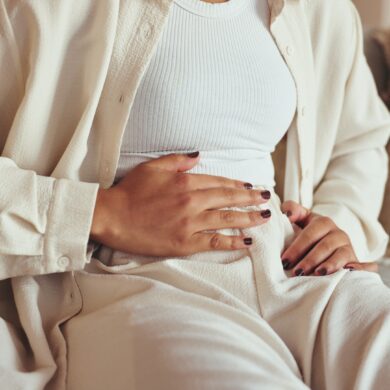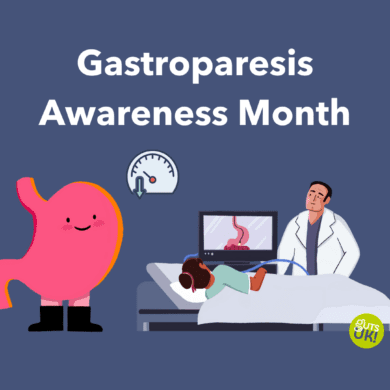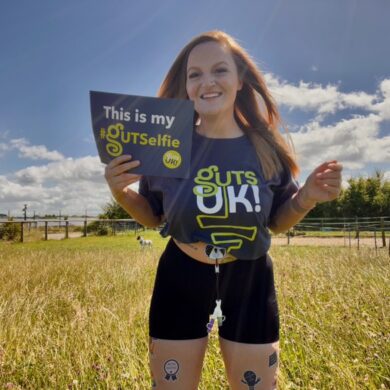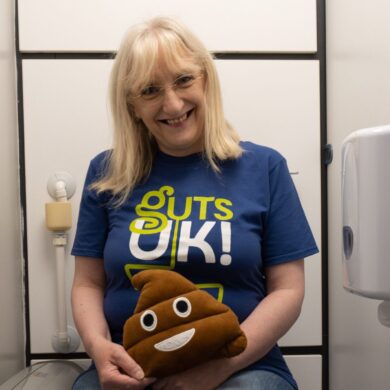Lucy’s Story – Gastroparesis
“I've learned to take each day as it comes, because there will be tough times, but also better ones ahead. It's so important to remember that. I always try to remember that this is my situation right now, and I don't know what the future will look like."
Tell us a little about yourself
“I’m Lucy and I’m 19. I live just outside Glasgow, with my mum, dad, two sisters and guinea pigs, Nugget and Norman. I like music, Pilates and hanging out with friends. I’m looking forward to going to university in Glasgow this September to study Politics and International Relations. I chose the degree because it’s quite an open subject. I’m hoping to work in policy and advocacy for a charity one day.”
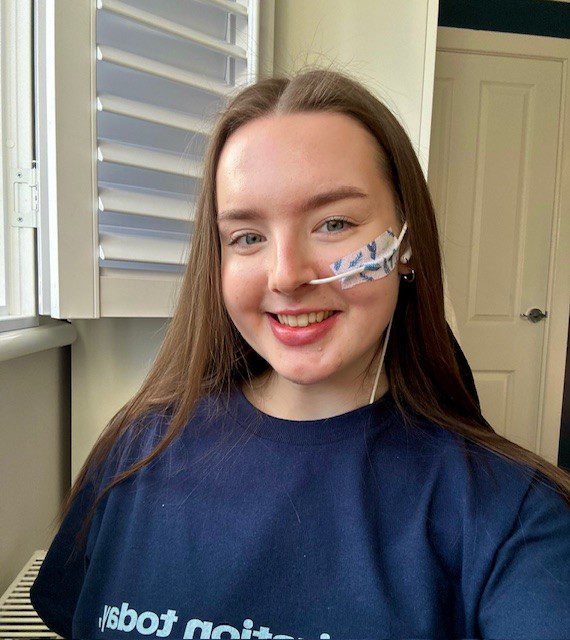
When did your gastroparesis symptoms begin, and what were they?
“I have PoTS (Postural orthostatic tachycardia syndrome), which is an autonomic nervous system disorder. I was diagnosed when I was 14, but I had symptoms from being around nine or ten. PoTS has so many symptoms, and it can affect your stomach as well. When I first started having trouble with my bowels and had nausea and extreme abdominal pain, I just thought it was PoTS.
Then in the summer of last year, things got more severe, and it became more obvious that maybe something else was wrong.
I was admitted to hospital with really low blood sugar. I was nauseous and I just kept throwing up. I was struggling to keep anything down and had excess saliva. It was put down to a virus because I had a high temperature, but the symptoms continued after I was discharged.”
Talk us through your journey to diagnosis
“After going back and forth to the GP, gastroparesis was mentioned as a possible connection to PoTS because they can both co-exist. I had such severe stomach pain and needed stronger pain relief, so I was then sent for testing. I had an endoscopy (a thin tube with a small camera on the end inserted via the mouth), which came back normal. I then had a gastric emptying scintigraphy (a medical test that tracks how long it takes a meal (or drink) to move through your stomach and empty from it), which is what diagnosed the gastroparesis.
Guts UK was the first charity I came across when I was looking at information about the condition. The website explained gastroparesis in a really simple way, and there were pictures showing how food goes into your stomach and gets stuck, which made it easier for me to learn about it.
I also read a woman’s story, which connected a lot with mine. Although I saw she had a feeding tube, which I hoped I would never need. It was nice to see someone else with the condition, knowing that it wasn’t just me, especially because she was close to my age.”
What treatment have you received?
“So at the start, the treatment was dietary, and I was referred to a dietitian. I was put on a low-fibre, low-fat diet, and I was taking nutritional supplements, which reduced my pain enough so I wasn’t ending up in A&E every other week with severe pain.
I just kept losing weight, and my blood sugars were so low all the time. I was still feeling sick and being sick, so then I was admitted to hospital in the new year, and everything just got so much worse again.
There wasn’t really a choice with getting the feeding tube; I was barely able to speak and move in the hospital bed because I was so exhausted and weak. I just remember crying. I didn’t want a feeding tube at all. I was really scared, and I didn’t know anyone who had one. I thought a feeding tube meant I was going to be in the hospital all the time, which I’ve realised now, it doesn’t mean that at all.
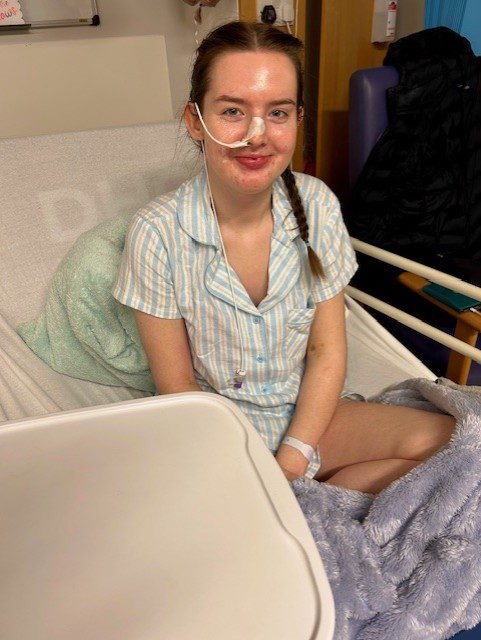
Everything happened over a weekend, so I had time to think about it before the final decision was made on Monday. At this time, I reached out to a few people who had them, and they spoke to me and told me it’s helped them a lot.
I would say to anyone going through a similar experience to embrace the tube and go with it. It was a hard thing to process, I think, because when I was first diagnosed, it wasn’t in my head at all that I would have a tube.”
How are you now, and can you tell us how gastroparesis impacts your everyday life?
“I have so much more energy. Even after a week of starting the feeds, I just felt so much more like myself. My weight has gone up, and my low blood sugar is much better controlled. I’m also about to start university, which at one point I never thought possible.
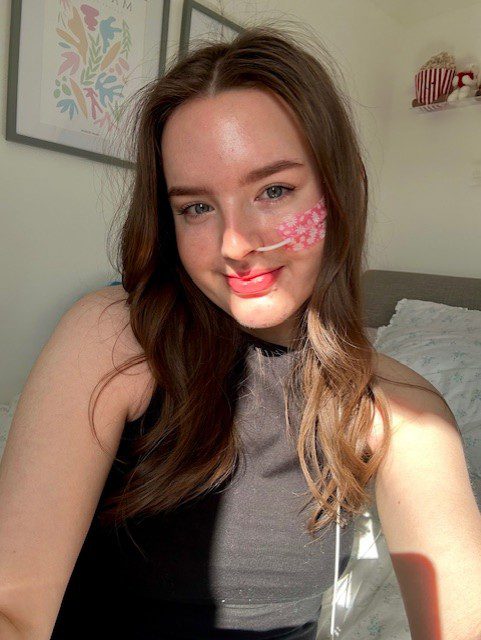
The tube goes straight to the intestine, so I’m able to get pain relief through the tube and I feel the effects better and more quickly than when I took oral tablets, which would often have no effect because they would just sit in my stomach or I would vomit them back up.
My tube can block quite easily, so initially it lasted for a good three months, but more recently, they’ve not been lasting as long because they’ve just been blocking or coiling up in my stomach.
When my tube is replaced, they do an endoscopy, and then they put the tube down. Many people are sedated, but the sedation doesn’t work on me, so I have to be awake. I find it distressing, but I know it has to be done.”
Note: For support and information on feeding tubes, please visit the PINNT website, a support and advocacy group for people on Home Artificial Nutrition.
What’s the most common thing you get asked about your condition?
“People always ask me if I can eat or drink because they’re kind of confused and I always ask ‘why?’ When the tube was first fitted, it was just apple juice really, and that was that.
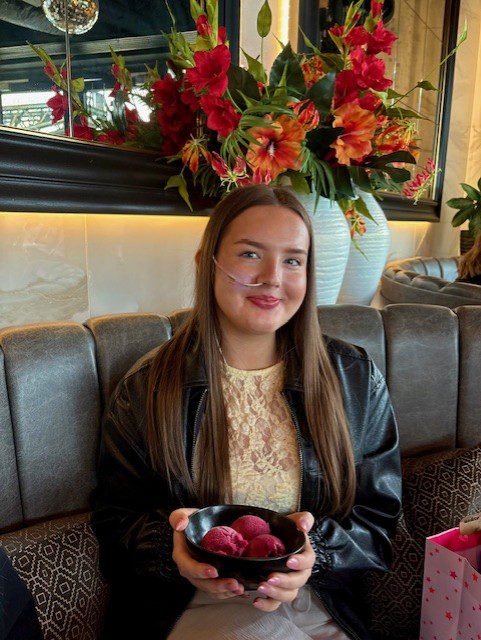
Now I’m able to have things like cups of tea, mashed potato and ice lollies. I do have a bite of things here and there, but I need to be careful because I don’t want to eat too much and be sick because the tube comes out. I really love sweets, but it’s the worst thing because they get stuck on the tube, especially when they’re chewy. I’ve done it too many times, so hard-boiled sweets are probably the best, or cereal as well. Sometimes I have Rice Krispies or Coco Pops.”
How have your loved ones supported you to get to grips with gastroparesis?
“Everyone has been amazing. My mum has always been there and drives me to the hospital when I’m in so much pain, even if it’s 3 am, and my dad is the same. I have two sisters, and they’re really supportive as well.
My friends have been incredible. It’s just been such a new thing to all of us, especially the tubing things. There was a period of just trying to adjust to what this life looks like now, but they’ve all been great. They’ve all looked up gastroparesis as well and tried to understand. They ask me lots of questions and check in with how I’m feeling and how things are going. I’m really lucky to have that.”
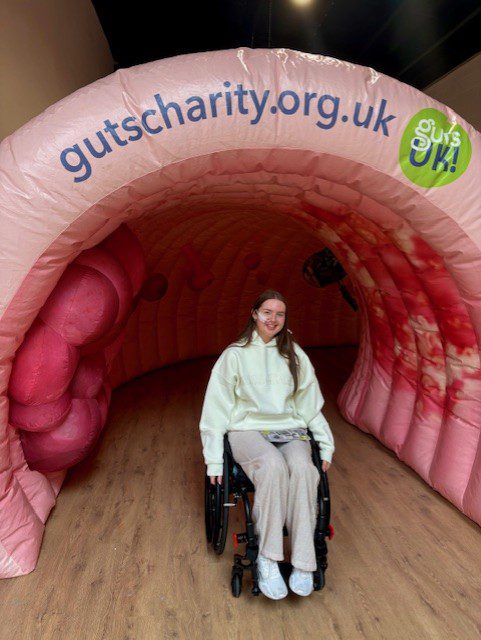
Why are you sharing your story today?
“I think I just want to raise awareness of the condition as it’s not that well known. And share my experience so that if there’s anyone else who’s newly diagnosed, or suspects that they may have it, they may be able to relate and feel a bit less alone with it.”
What advice would you give to anyone else newly diagnosed and/or living with gastroparesis?
“I’ve learned to take each day as it comes, because there will be tough times, but also better ones ahead. It’s so important to remember that. I always try to remember that this is my situation right now, and I don’t know what the future will look like. I know there isn’t a cure, and that can be scary. Also, try not to be afraid of having a feeding tube; it’s there to support you, so try to accept it even though I know it’s incredibly difficult.”
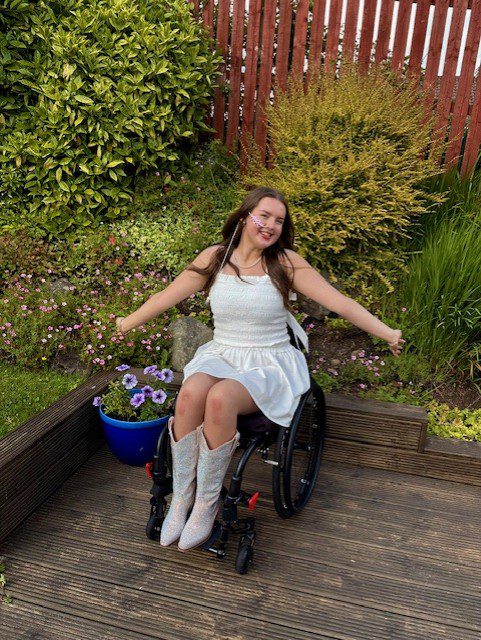
We want to say a huge thank you to Lucy for sharing her story with Guts UK, and we wish her the best of luck as she starts her studies at university in September.
“We’re getting to grips with guts”
Guts UK is the charity for the digestive system from top to tail. Our guts have been underfunded, misunderstood and undervalued for decades.
We’re proud to have funded stem cell research into achalasia and gastroparesis. With new knowledge, we will end the pain and suffering for the millions affected by digestive diseases. Guts UK’s research leads to earlier diagnoses, kinder treatments and ultimately, a cure.
Help the UK get to grips with guts by donating today.
